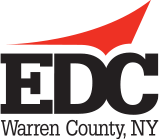Workforce Data for Warren County, New York
Economic Data
- New York Department of Labor, Capital Region Labor Statistics
Includes data on the Glens Falls MSA (Warren & Washington counties) as well as contact information for the NYS Department of Labor Analyst - Glens Falls MSA Detailed Labor Market Overview
- U.S. Census Quick Facts Community Profiles U.S. Census Bureau
- Occupational Employment Projections to 2022, Bureau of Labor Statistics
Some of the fastest projected growth will occur in the healthcare, healthcare support, construction, and personal care fields. - Job Growth by Metro Area (MSA) through 2022, The Atlantic Cities, Richard Florida
Using baseline projections from the Bureau of Labor Statistics, these maps project job growth for all of America’s 350-plus metros over the next decade
Higher Education Resources Near Warren County, NY
Numerous Award Winning Colleges, Universities & Training Centers
An impressive list of 35 institutions of post high-school education exist within 50 miles of Glens Falls, Warren County, preparing a 21st century workforce pipeline for employers who locate and expand here.
Approximately 90,000 students attend a wide range of educational experiences, ranging from career and vocational schools providing certificates or associate degrees in specific career-focused topics to liberal arts colleges and universities granting professional and doctoral degrees.
RPI (Rensselaer Polytechnic Institute) and Union College have been ranked among the nation’s most computer-savvy universities.
RPI, as well as the State University of New York’s University at Albany and SUNY Polytechnic Institute are internationally renowned for their research and development programs and collaborative projects with the private sector.
- In 2013, the AMOS supercomputer at RPI became the most powerful university-based supercomputer in New York state and the Northeast, and among the most powerful in the world. This investment enabled RPI and its academic and industry partners tackle highly complex, data-rich research challenges ranging from personalized health care, to smart grids, to water quality to economic modeling.
- SUNY Polytechnic Institute is a global education, research, development, and technology deployment resource working to prepare the next generation of scientists and researchers in nanotechnology. SUNY Poly is a 1.3 million-square-foot megaplex with the only fully-integrated, 300mm wafer, computer chip pilot prototyping and demonstration line within 140,000 square feet of Class 1 capable cleanrooms.
- At SUNY’s UAlbany, new programs have been established in cybersecurity, digital forensics, and entrepreneurship, and the business school programs are seeing increased interest from nanotech graduates from SUNY Poly.
Leading Graduate and Professional Schools
Albany Medical College, Albany Law School, and Albany School of Pharmacy are highly regarded institutions within their specific professional educational niches.
Liberal Arts Colleges
The region also has strong four-year liberal arts, science and business oriented colleges, including the College of St. Rose, Siena College, Skidmore College, Sage College, and Williams College in nearby northwestern Massachusetts, and Bennington College in southern Vermont.
Technical Education & Training Programs
Leading technical education and training programs in the Capital Region include:
- Hudson Valley Community College in Troy (with its new science and technology center, aimed at training mid-level skilled workers for science-related technical and manufacturing jobs), and its TEC-SMART campus in Malta, New York (the Training and Education Center for Semiconductor Manufacturing and Alternative Renewable Technologies)
- Schenectady County Community College, where the Nanoscale Materials Technology program provides students a foundation in materials science, chemistry, physics, mathematics, and electronics
- SUNY Adirondack, a Warren County community college, with a Tech Valley Track that offers degrees in engineering, science, computer science, information technology, computer networking, mechanical technology, electrical technology, and more
- Apprentice programs like the Local 773 Regional Training Center for plumbers and pipefitters Glens Falls, support local economic growth by training the workforce needed by industry in the area
Saratoga Warren Washington Workforce Development Board (WDB)
EDC participates in the local regional Workforce Development Board. The WDB is a private sector led board jointly appointed by Saratoga, Warren and Washington counties. The board was initially established in July 2000 as a result of federal job training legislation (the Workforce Investment Act) and more recently redesigned under the Workforce Innovation and Opportunity Act (WIOA). The majority of the board and the leadership is comprised of local businesses. There are also representatives of other workforce related entities such as economic development, chambers of commerce, literacy programs, education, vocational rehabilitation and others.
The role of the WDB is to connect with businesses, business organizations and other workforce service providers to: Identify the workforce development needs of businesses; Develop resources to address identified workforce development needs; Implement or facilitate training designed to develop a more skilled workforce.
The two primary functions of the WDB is 1. To develop linkages with businesses and promote the participation of businesses in the local workforce system with the goal of addressing the hiring and workforce needs of those businesses. 2. Provide guidance, administrative oversight and policy making for the federal workforce funding provided to the three county area in a manner that will best assist local businesses and jobseekers. This includes oversight of the local One Stop Career Centers which provide workforce services to both businesses and jobseekers as well as development of a collaborative system of service provision between area workforce agencies.
For more information on the WDB visit www.thejoblink.org
